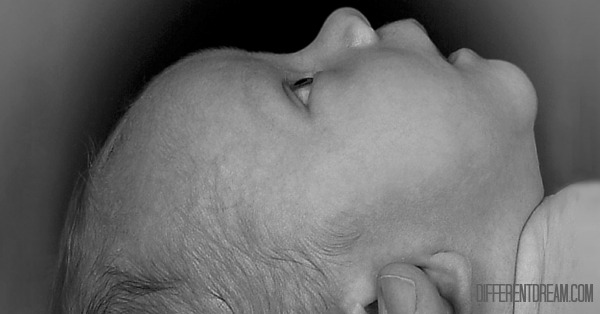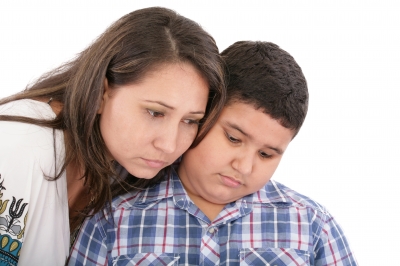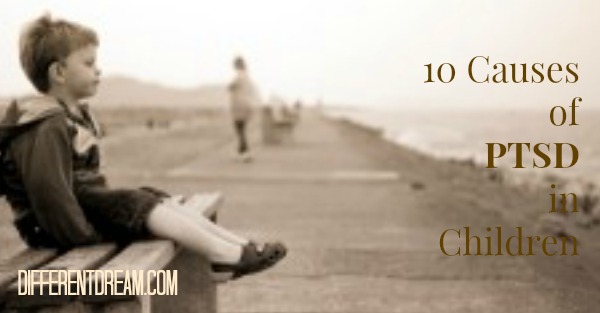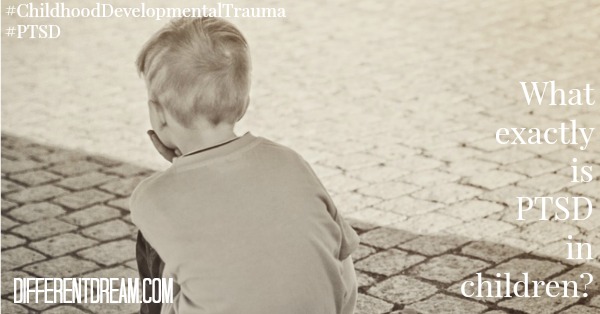Inside Out Special Needs Parenting: Implicit and Explicit Memory

This Different Dream post is the fourth installment in a series about special needs parenting from the inside out. The series is the result of what I learned while researching Does My Child Have PTSD? What To Do When Your Child Is Hurting from the Inside Out.
Today, we’re taking a look at the two kinds of memories present in all of us: implicit and explicit. The day I learned about implicit and explicit memories was an “aha” moments for me. Once you understand the basics of implicit and explicit memories, you’ll see why some of the things your kids say and do push your buttons and lead you down the low road of special needs parenting.
Implicit Memory and Special Needs Parenting
Have you ever heard someone state that children don’t remember anything that happens to them from birth to about age 3? My husband and I were told that often during the hospital stays and surgeries that were part of our son’s life for about four years, starting the day he was born. That was in 1982, and since then much has been learned about the true nature of memory in young children.
The truth is that we all remember what happened in the first few years of life. Child psychiatrist Daniel Siegel explains how this happens Parenting from the Inside Out: How a Deeper Self-Understanding Can Help You Raise Children Who Thrive.
Siegel describes implicit memory as “a form of nonverbal memory that is present at birth and continues throughout the life span.” People aren’t aware that they are recalling something from the past because the events aren’t remembered as events but as emotions, bodily sensations, and perceptions.
Explicit Memory and Special Needs Parenting
Explicit memory begins when a part of the brain called the hippocampus begins to create new circuits sometime after kids turn one. Explicit memory has two components. The first is factual memory, which develops around a year and a half. Young children use it to record names of things like flower, cow, and kitty. The second component of explicit memory is “autobiographical memory, which begins to develop sometime after the second birthday.” When we talk about our earliest memories, these are the ones that come to mind–the first few frames of the movie that is the story of our lives.
Implicit Memories Can Mess with Your Head
An explanation of implicit and explicit memory reveals why people sometimes take the low road and have no idea why. Because we’re all nonverbal until around age three—about the same time explicit memory kicks in—most of our early memories are stored as images, smells, and sounds. Including the frightening, wordless ones buried inside us. Once triggered by situations involving our kids and the actions of our children, even the best moms and dads can flip their lids and land on the special needs parenting low road…and deeply regret those behaviors later.
The next post in this series will look at the Intensive Trauma Response (ITR) model, which explains what goes on inside the brain when frightening memories are triggered, in people of all ages. Until then, you can learn more about implicit and explicit memory in Daniel Siegel explains how this happens in Parenting from the Inside Out: How a Deeper Self-Understanding Can Help You Raise Children Who Thrive by Daniel Siegel and Does My Child Have PTSD? What To Do When Your Child Is Hurting from the Inside Out by Jolene Philo.
Your Insights?
Did today’s Inside Out Special Needs Parenting post result in any “aha” moments for you? Feel free to share them in the comment box.
Inside Out Special Needs Parenting, Part 1
Inside Out Special Needs Parenting, Part 2
Inside Out Special Needs Parenting, Part 3
Do you like what you see at DifferentDream.com? You can receive more great content by subscribing to the quarterly Different Dream newsletter and signing up for the daily RSS feed delivered to your email inbox. You can sign up for the first in the pop up box and the second at the bottom of this page.
By Jolene
Jolene Philo is the author of the Different Dream series for parents of kids with special needs. She speaks at parenting and special needs conferences around the country. She’s also the creator and host of the Different Dream website. Sharing Love Abundantly With Special Needs Families: The 5 Love Languages® for Parents Raising Children with Disabilities, which she co-authored with Dr. Gary Chapman, was released in August of 2019 and is available at local bookstores, their bookstore website, and at Amazon.
Subscribe for Updates from Jolene
Related Posts
Childhood Depression: What Are the Signs?
Childhood depression is a growing concern in our country. Recognizing symptoms in children at different ages can help parents find early, effective treatment.
10 Causes of PTSD in Children
Many causes of PTSD in children exist. This post looks at 10 very common ones parents need to be aware of.
PTSD in Kids: What Is It?
PTSD in kids, also known as childhood developmental trauma, is a real and diagnosable mental illness. This post gives a brief definition of PTSD in kids.






0 Comments